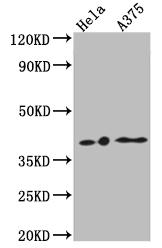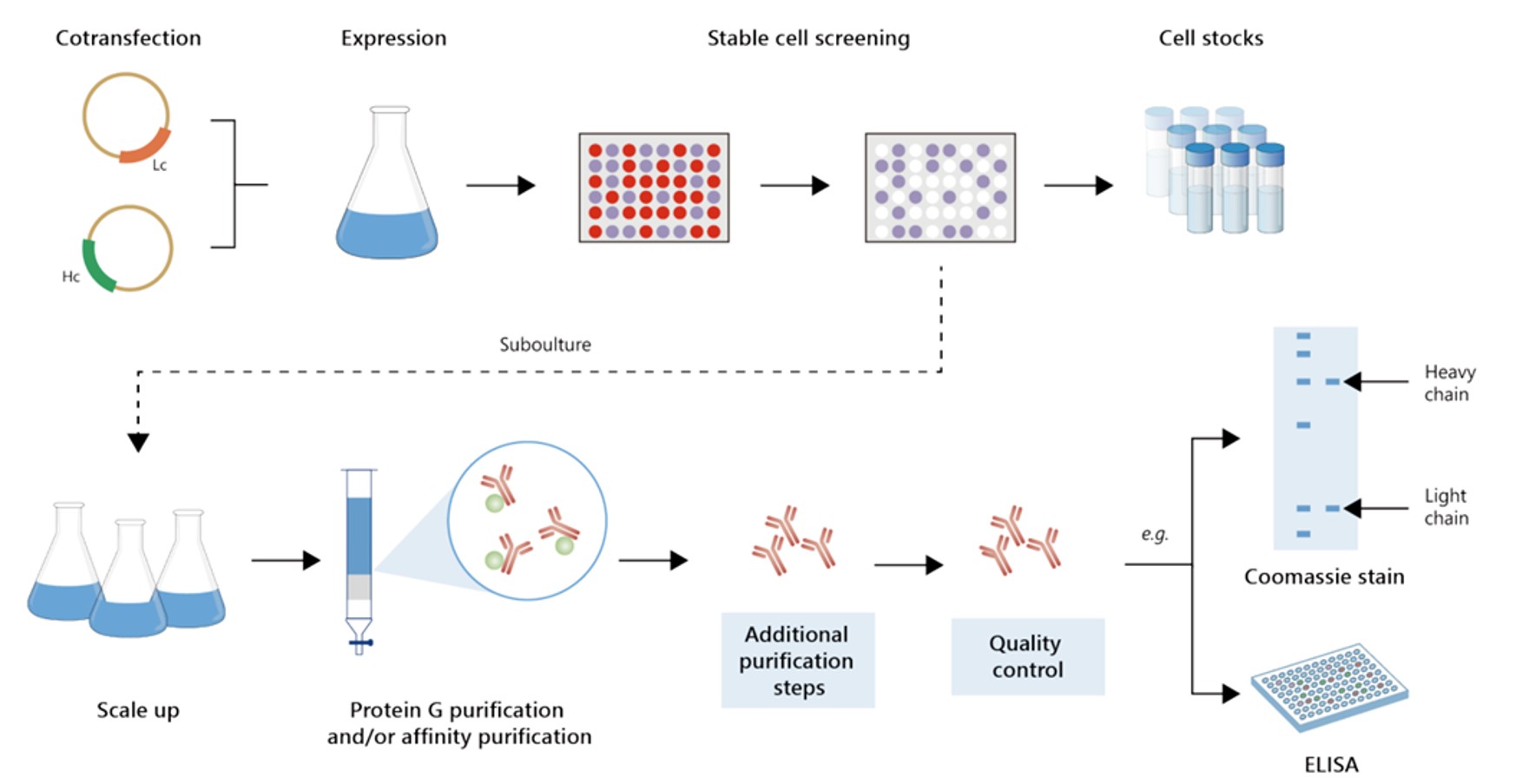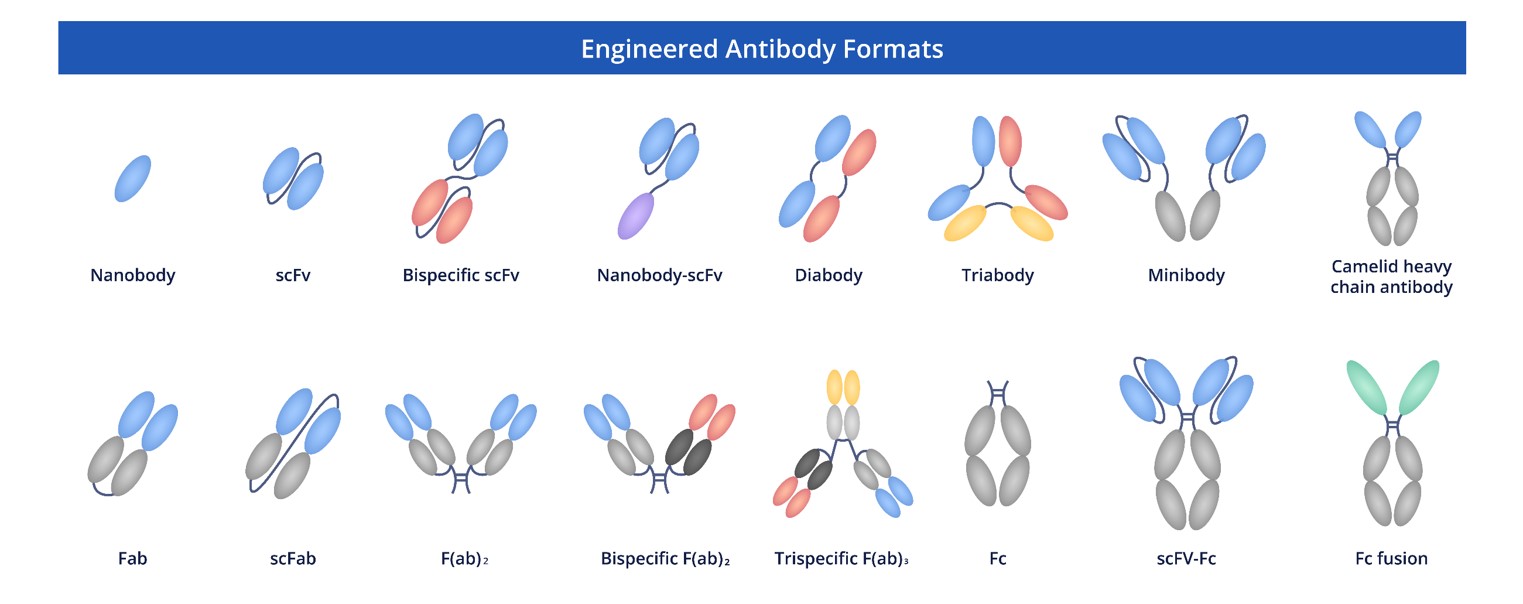 Loading...
Loading...

Anti-LPAR1 Recombinant Antibody Products
 Loading...
Loading...Anti-LPAR1 Products
- Rabbit Anti-LPAR1 Polyclonal Antibody (MRO-2016-CN) (MRO-2016-CN)
-
- Species Reactivity: Mouse
- Type: Rabbit IgG
- Application: WB, IHC
-
- Species Reactivity: Human
- Type: Rabbit IgG
- Application: ELISA, WB
- Anti-LPAR1 Immunohistochemistry Kit (VS-0525-XY4075)
-
- Species Reactivity: Human
- Target: LPAR1
- Application: IHC
-
- Derivation: Phage display library screening
- Species Reactivity: Human
- Type: IgG
- Application: WB, IHC-P, IP
Can't find the products you're looking for? Try to filter in the left sidebar.Filter By Tag
Our customer service representatives are available 24 hours a day, from Monday to Sunday. Contact Us
For Research Use Only. Not For Clinical Use.
Creative Biolabs provides high-quality recombinant antibodies specifically designed for LPAR1, catering to the needs of biomedical researchers and institutions. Our antibodies undergo rigorous development to ensure exceptional specificity and performance across diverse applications. Dedicated to advancing scientific research, we offer dependable solutions that support researchers in making meaningful discoveries, ultimately enhancing the impact of their work and driving progress in the field.
LPAR1: A Promising Therapeutic Target in Oncology
LPAR1 (Lysophosphatidic Acid Receptor 1) is a G protein-coupled receptor that interacts with lysophosphatidic acid (LPA), a lipid signaling molecule involved in numerous cellular activities. It is important for regulating cell growth, movement, development, and survival, and is implicated in conditions such as fibrosis, cancer, and neurological diseases. It is widely expressed in multiple tissues and contributes to inflammatory responses, wound healing, and tumor progression. Due to its involvement in various diseases, LPAR1 has become a promising therapeutic target, with research focusing on developing inhibitors or modulators for potential treatments in oncology, fibrosis, and autoimmune conditions.
Alternative Names
EDG2; LPA1; VZG1; edg-2; vzg-1; Gpcr26; Mrec1.3; rec.1.3
Background
The integral membrane protein encoded by this gene is a lysophosphatidic acid (LPA) receptor from a group known as EDG receptors. These receptors are members of the G protein-coupled receptor superfamily. Utilized by LPA for cell signaling, EDG receptors mediate diverse biologic functions, including proliferation, platelet aggregation, smooth muscle contraction, inhibition of neuroblastoma cell differentiation, chemotaxis, and tumor cell invasion. Many transcript variants encoding a few different isoforms have been identified for this gene.
G-protein coupled receptors
Membrane
Cell type enriched (Oligodendrocytes)
Group enriched (eosinophil, classical monocyte)
Cell line enhanced (ASC diff, ASC TERT1, BJ hTERT+, HSkMC)
Interacts with RALA and GRK2 (PubMed:19306925). Interacts with GNAQ and GNA13. Interacts with CD14; the interaction is enhanced by exposure to bacterial lipopolysaccharide (LPS) (By similarity).
G-protein coupled receptor, Receptor, Transducer
Anti-LPAR1 rAb Products
Premium anti-LPAR1 recombinant antibodies are provided to support and expedite research on LPAR1-related drug discovery. These high-quality products are designed to enhance scientific studies, ensuring reliable results and facilitating the development of innovative therapeutic solutions targeting LPAR1.
| Cat. No. | Product Name | Target Species | Host Species | Applications |
| MRO-2016-CN | Rabbit Anti-LPAR1 Polyclonal Antibody (MRO-2016-CN) | Mouse | Rabbit | WB; IHC |
| ZG-0029U | Rabbit Anti-LPAR1 Recombinant Antibody (clone 4C3) | Human | Rabbit | ELISA; WB |
| MOR-2077 | Hi-Affi™ Recombinant Rabbit Anti-LPAR1 Monoclonal Antibody (DS2077AB) | Human | Rabbit | WB; IHC; IP |
Creative Quality Control
To ensure superior antibody quality, we have established a rigorous quality management system. This framework guarantees the reliability of our products and supports researchers in conducting their studies more efficiently, providing them with high-performance tools for successful scientific advancements.
 Fig.1 WB analysis of anti-LPAR1 antibody
Fig.1 WB analysis of anti-LPAR1 antibody
(Cat# ZG-0029U, Creative Biolabs).
Customer Reviews

Rabbit Anti-LPAR1 Recombinant Antibody (clone 4C3) (Cat#: ZG-0029U)

Hi-Affi™ Recombinant Rabbit Anti-LPAR1 Monoclonal Antibody (DS2077AB) (Cat#: MOR-2077)
Anti-LPAR1 Recombinant Antibody Production
Utilizing a serum-free mammalian cell expression platform, we provide an all-in-one service, spanning from gene synthesis to the production of high-quality milligram-scale recombinant antibodies. With over five years of expertise in refining expression vectors, cloning systems, and high-yield mammalian cell lines, we guarantee stable and reliable antibodies, supporting researchers in achieving their scientific goals.
Featured Anti-LPAR1 Recombinant Antibody Production Platforms
Fig.2 Milligram-scale recombinant antibody production.
 Fig.3 Gram-scale recombinant antibody production.
Fig.3 Gram-scale recombinant antibody production.
rAb Modalities
Creative Biolabs is committed to providing researchers with cutting-edge, high-quality recombinant antibodies in a variety of formats. These include, but are not limited to, full-length, scFv, scFv-Fc, scFv-CH3, sc-Fab, and full-length antibodies with different Fc isotypes. Our products are backed by advanced custom engineering services, tailored to meet specific research needs, ensuring optimal performance and flexibility in scientific applications.
 Fig.4 Full Length Anti-LPAR1 Recombinant Antibody Production and Modalities.
Fig.4 Full Length Anti-LPAR1 Recombinant Antibody Production and Modalities.
Drug Information Targeting LPAR1
Table 1. Therapeutic approaches targeting LPAR1 in clinical development.
| Research phase | Company | Classification | Indications | Details |
| Phase II | Amgen | Small Molecules | Idiopathic pulmonary fibrosis; Renal Disorders | It is an oral, small-molecule LPA1 receptor antagonist, in phase II clinical development at Amgen for the treatment of diffuse cutaneous systemic sclerosis and idiopathic pulmonary fibrosis. |
| Phase II | Amira Pharmaceuticals | Small Molecules | Fibrosis | This is an LPA1 receptor antagonist that completed phase II clinical trials at Bristol-Myers Squibb (formerly Amira) for the treatment of idiopathic pulmonary fibrosis. |
| Phase I | Pipeline Therapeutics | Others | Multiple sclerosis; Neurological Disorders | It is a brain-penetrant small molecule antagonist of the lysophosphatidic acid 1 receptor (LPA1), is in phase I clinical trials Pipeline Therapeutics in healthy volunteers. |
For more details about our anti-LPAR1 recombinant antibody products, please don't hesitate to contact us. Our team is ready to provide assistance and address any inquiries you may have. We look forward to collaborating with you to support your research and foster a successful, mutually beneficial partnership.



